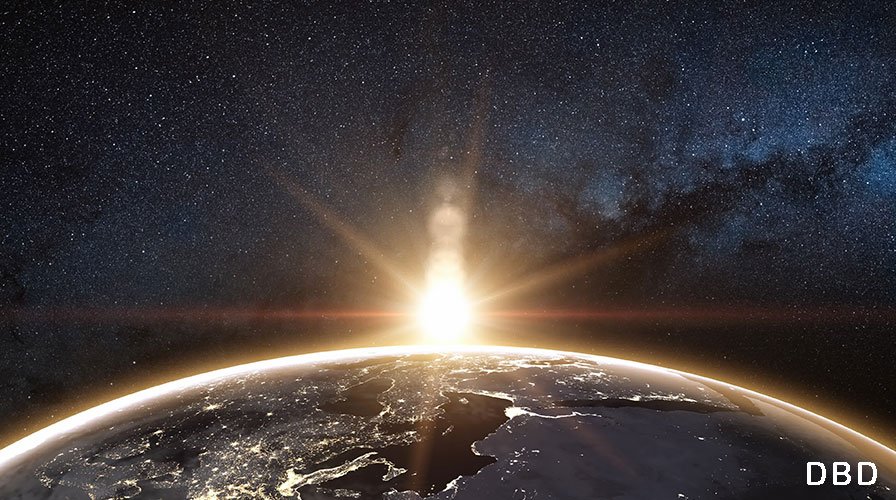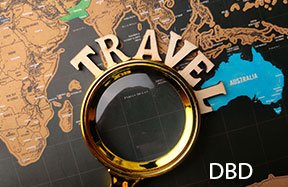10 Things That Make Planet Earth So Amazing
Planet Earth is a unique and extraordinary place in the vast expanse of the universe. From its diverse ecosystems to its natural wonders, Earth is a planet that never ceases to amaze. Here are ten things that make our planet so remarkable:
1. Biodiversity
Earth is home to various life forms, from microscopic bacteria to towering redwoods and massive blue whales. This biodiversity creates complex ecosystems that sustain life and contribute to the planet's health and stability. No matter how small, each species plays a vital role in maintaining ecological balance.
2. Oceans
The oceans cover over 70% of Earth's surface and are a vast and mysterious frontier. They regulate our climate, produce more than half of the world's oxygen, and are home to an incredible diversity of marine life. The beauty of coral reefs, the majesty of whales, and the vibrant schools of fish make the oceans a source of endless fascination.
3. Forests
Forests, often called the lungs of the Earth, are essential for life. They provide oxygen, store carbon, and offer habitat for countless species. The Amazon Rainforest, often called the "world's largest pharmacy," contains thousands of plants used in modern medicine. Forests also offer recreational opportunities and a serene escape from urban life.
4. Mountains
Majestic and awe-inspiring, mountains are among the most stunning features of our planet. They offer breathtaking landscapes, support diverse ecosystems, and provide water for millions of people. From the towering peaks of the Himalayas to the rugged Rockies, mountains challenge adventurers and inspire artists and writers.
5. Deserts
Deserts may seem barren, but they are teeming with life adapted to extreme conditions. The vast dunes, unique rock formations, and resilient flora and fauna make deserts fascinating landscapes. Deserts also hold ancient secrets in their sands, preserving the history of Earth's climate and human civilization.
6. Rivers and Lakes
Freshwater systems like rivers and lakes are the lifeblood of our planet. They provide drinking water, agriculture irrigation, and countless species' habitats. Iconic rivers such as the Nile, Amazon, and Mississippi have shaped human history and remain vital for modern societies.
7. Weather and Climate
Earth's weather and climate systems are incredibly dynamic and complex. From the gentle drizzle of rain to the fury of a hurricane, these systems influence every aspect of life on Earth. The changing seasons bring variety to our lives, from spring blooms to fall harvests.
8. Geological Wonders
The Earth's geological features are a testament to its dynamic nature. Volcanic eruptions, earthquakes, and tectonic activity constantly reshape the planet. Geological wonders like the Grand Canyon, the Great Barrier Reef, and the towering cliffs of Yosemite offer breathtaking views and insights into the Earth's history.
9. Polar Regions
The polar regions, with their icy landscapes and extreme conditions, are among the most unique places on Earth. The Arctic and Antarctic are home to extraordinary wildlife, such as polar bears and penguins, and play a crucial role in regulating the planet's climate. The stark beauty of the polar ice caps reminds us of the planet's fragility and the impact of climate change.
10. Human Cultures and Civilizations
Human beings have created diverse cultures and civilizations that reflect the ingenuity and adaptability of our species. From ancient ruins like Machu Picchu and the Pyramids of Giza to modern cities like Tokyo and New York, human achievements are a testament to our creativity and resilience. Our cultural heritage, languages, traditions, and innovations make Earth a vibrant and dynamic place.
Conclusion
Planet Earth is a treasure trove of natural wonders and cultural richness. Its diverse landscapes, ecosystems, and human civilizations make it an extraordinary place to call home. By appreciating and protecting these remarkable features, we can ensure that Earth remains a source of wonder and inspiration for future generations.






